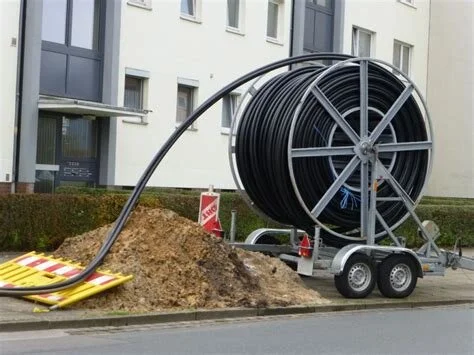
Utility Accounting Education Update
The latest in electric co-op and utility accounting and finance, developing electric rates, and financial management
Providing Broadband Services
November, 2021
This month’s focus is on providing broadband services. A number of municipalities, electric utilities, and electric cooperatives have established telecommunications utilities to provide telecom services in underserved areas. We discuss strategy, the importance of a feasibility study, and expected costs of operations. Review these articles as part of your evaluation process!
We also introduce our “Utility Accounting and Finance Fundamentals” course series - courses on best-practices in specific electric areas that you can take in 30 minutes or less.
Thanks for subscribing and we hope you enjoy the newsletter!
The 7 Major Costs in Providing Telecommunications Services
What costs can we expect to operate a telecom utility?
If your community or utility is contemplating establishing a telecommunications utility to provide services (cable tv, broadband internet, phone service), there are many considerations. This article scratches the surface of the details on the costs that will be incurred in proving telecommunications services.
In your evaluation process, you’ll undergo a feasibility study to determine the estimated costs that will be incurred, the forecasted percentage of the community that will take service, and the rates that could be charged and applied towards costs recovery. The feasibility study is the linchpin in your decision whether to proceed with providing services. The feasibility study should perform a traditional SWOT (strengths, weaknesses, opportunities, threats) analysis and forecast operating costs. What are those costs?
Successful Approaches by Utilities & Co-ops in Providing Telecommunication Services
Telecommunications services encompass cable TV, internet, business, and broadband internet phone services. There are generally several choices for broadband or telecommunications service providers by private sector companies in large urban areas. Private telecommunications companies have been serving smaller communities and rural areas also. However, many regions of the United States still do not have "broadband" services, as defined by the Federal Communications Commission (FCC) as a minimum of 25 Mbps (megabits per second) download speed and 3 Mbps upload speed.
Telecommunications service is one of the foundations of a successful society, powering commerce, education, utility services, and government. Where there are gaps in service, local electric co-ops, utilities, and communities have formed telecommunication systems to fill the void. How do these systems get up and running? This article discusses the steps to consider.
The UAES article library covers introductory and advanced co-op, FERC, and utility accounting, developing electric rates, and financial management. We include practical examples you can use now in your electric cooperative or utility!
Telecommunications Services - Public Sector Success Stories
Telecommunications services encompass cable TV, internet, business, and broadband internet phone services. There are generally several choices for broadband or telecommunications service providers by private sector companies in large urban areas. Private telecommunications companies have been serving smaller communities and rural areas also. However, many regions of the United States still do not have "broadband" services, as defined by the Federal Communications Commission (FCC) as a minimum of 25 Mbps (megabits per second) download speed and 3 Mbps upload speed.
This article details some case studies of success by the public sector in providing telecom services.
Introducing - Utility Accounting and Finance Fundamentals
A “bite-sized morsel” of information for your organization
Utility Accounting and Finance Fundamentals! A stuffy name? Absolutely. But a great name for a choice of short classes that get straight to the point with insights in electric accounting, finance, business processes, electric rates, and strategy implementation. Each class covers an electric industry fundamental area in 30 minutes or less to fit your busy schedule.
Click on the link to see our offering of snippets and the full library of UAES courses that are designed for practical application to your business!
Thank you for your support and interest in best practices in accounting, developing electric rates, and financial management. The Power and Utilities Industry is the foundation for a vibrant economy and an integral part of our society! See you next month, or check us out anytime at:
Final thoughts for this issue
“The greater danger for most of us isn’t that our aim is too high and miss it, but that it is too low and we reach it.”
“I am lucky that whatever fear I have inside me, my desire to win is always stronger.”





